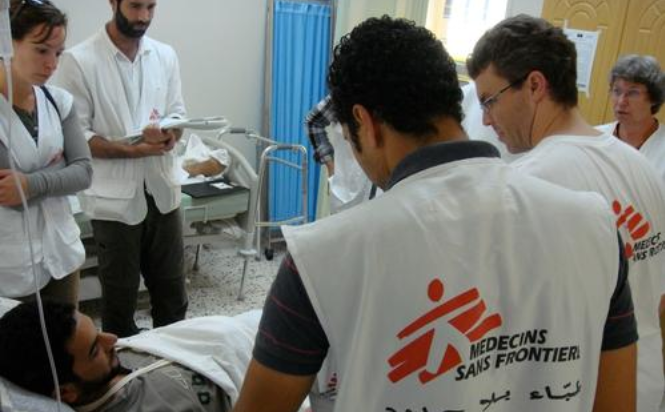From Médecins Sans Frontières (MSF).
Libya’s once-efficient health system is in a state of crisis. Hospitals are closed, or else struggle to function because of a lack of experienced medical staff and shortages of essential medicines and equipment, in particular insulin and dialysis equipment.
Many Libyan hospitals were previously staffed by nurses from overseas, but most left Libya after the war against Muammar Al Gaddhafi in 2011 and the subsequent armed conflict between the supporters of political Islam and their adversaries.
The state of the health service is perhaps unsurprising in a country with two separate health ministries attached to two different governments battling against each other for power. The government recognised by the international community is exiled to Tobruk, in eastern Libya, while the government based in the capital, Tripoli, controls the west of the country.
MSF is supplying those hospitals that still function with essential medicines. For instance, it has donated antibiotics and analgesics to the central hospital in Misrata, in western Libya. The MSF team is also providing training to medical staff, in inpatient wards, emergency rooms and surgical units. Their aim is to train head nurses in each department, who in turn will be able to instruct nurses who have only a few months experience caring for patients.
At the public hospital in Zuwara, near the Tunisian border, an MSF team is training health staff in intensive care and emergency care. Zuwara is the only hospital in the district equipped to provide emergency care. In February 2016, following US airstrikes targeting Islamic State (IS) militants in Sabrata and attacks by IS, the hospital admitted 15 wounded.
In eastern Libya, the issues are similar, with hospitals suffering from a lack of trained staff and drug shortages. “At hospitals treating the injured in eastern Libya, we provide similar assistance,” says Malika Saim, emergency coordinator for Médecins Sans Frontières/Doctors Without Borders (MSF).





